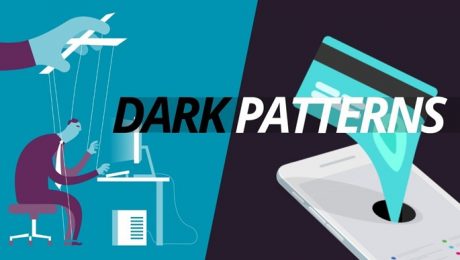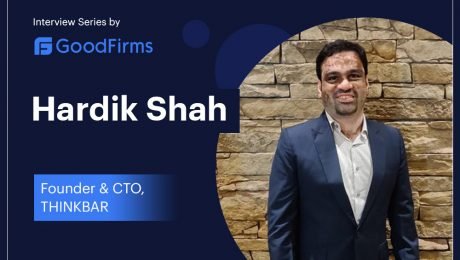Maximizing Your Marketing Budget: Proven Strategies from Thinkbar
Are you squeezing every drop of potential from your marketing budget, or is it slipping through unnoticed cracks? If the idea of maximizing your ROI without overspending intrigues you, read on!
In today’s fast-paced digital landscape, your marketing budget isn’t just about money—it’s about strategy, timing, and understanding where your audience truly thrives. For Thinkbar, this means adopting a focused approach that balances creativity with cost-efficiency.
1. Allocate Budget Smartly
Instead of spreading your resources too thin, concentrate on platforms where your target audience is most active. This ensures every dollar spent directly contributes to brand visibility and conversions.
2. Prioritize Digital Over Traditional
With online platforms providing detailed analytics, shifting more of your budget to digital campaigns (like social media ads, email marketing, or search engine ads) allows for precise audience targeting and real-time optimization.
3. Leverage Free and Low-Cost Tools
Who said marketing has to break the bank? Tools like Canva for design, HubSpot for CRM, and even Google Analytics provide powerful resources for little to no cost. Combine these with creative in-house content creation, and you’ll see significant savings.
What if you could double your ad reach without doubling your budget? The secret lies in knowing where your audience truly listens.
4. Tap Into Influencer Marketing
Micro-influencers often have higher engagement rates compared to larger influencers—and they cost less. Collaborate with local or niche influencers aligned with Thinkbar’s brand to increase trust and reach.
5. Optimize, Analyze, Repeat
Every campaign provides insights. Utilize A/B testing for your ads, analyze what works, and refine your strategy accordingly. A campaign without post-analysis is money left on the table.
Final Note: Strategic Spending = Maximum Impact
At Thinkbar, the goal isn’t just spending but spending smartly. Whether you’re crafting a killer social media campaign or building relationships through email marketing, a sharp focus on ROI ensures every dollar contributes to your growth.
Are you ready to transform your marketing budget into a powerhouse? Let Thinkbar lead the way! Share your thoughts or reach out to explore new strategies tailored just for you.
Smart marketing isn’t about how much you spend—it’s about how well you spend it. Ready to make every penny count?
- Published in Uncategorized
Cracking the Code: Unveiling Dark Patterns in India’s Digital Space (2024-2025)
As we enter 2024-2025, India’s digital landscape continues to grow exponentially. With this growth comes a troubling phenomenon—dark patterns. These manipulative design tactics aim to deceive users into taking unintended actions, often at the cost of privacy, money, or time. While dark patterns are a global issue, their impact is increasingly felt in India, where digital adoption is surging. What are dark patterns, and why are they such a pressing concern in 2024-2025?
What are Dark Patterns?
Dark patterns are deceptive design choices websites and apps use to subtly steer users into actions they might not otherwise take. These tactics can range from making it difficult to unsubscribe from a service to hide key information, leading users to unknowingly accept unfavourable terms. In essence, dark patterns exploit psychological loopholes in user behaviour to benefit businesses at the user’s expense.
The Growing Presence in India’s Digital Economy
With India’s rapid digital transformation, especially post-pandemic, more people are engaging with online services than ever before. Whether shopping, streaming, or banking, users are constantly navigating the web. Unfortunately, this increased engagement has led to a rise in dark patterns in the Indian context, especially on e-commerce platforms, digital payment gateways, and even government-related apps.
A recent report from The Hindu highlights that dark patterns are becoming a significant concern in India. As platforms compete for user attention, some resort to manipulative designs to boost profits. For instance, consumers may find it difficult to cancel a subscription, or are tricked into signing up for newsletters or sharing personal data.
Why Dark Patterns Are Dangerous
Dark patterns aren’t just annoying—they can lead to serious consequences. For one, they erode trust between users and platforms. Once consumers feel tricked, they are less likely to engage with a brand again. Moreover, these deceptive tactics often involve the misuse of personal data, exposing users to privacy risks. For a country like India, where digital literacy varies significantly, dark patterns disproportionately impact less tech-savvy users, making it even more problematic.
Beyond individual harm, the widespread use of dark patterns can undermine the credibility of the broader digital ecosystem. When users lose faith in online services, it stunts the growth of India’s digital economy, slowing down progress in areas like e-commerce, digital banking, and government-led digital initiatives.
Legal & Regulatory Challenges in India
Despite the rising concern, India currently lacks specific laws to combat dark patterns. The Consumer Protection Act offers some relief by targeting unfair trade practices, but the legislation isn’t explicitly designed to address deceptive online design. In contrast, regions like the European Union have stricter data privacy regulations, such as the General Data Protection Regulation (GDPR), which includes protections against dark patterns.
However, the landscape is changing. Discussions are underway about introducing digital consumer protection laws that specifically target dark patterns in India. These laws could place more responsibility on companies to maintain transparent and user-friendly design practices.
Types of Dark Patterns in 2024-2025
Privacy Deception
Manipulating users into unknowingly sharing more personal data than intended.
Have you ever agreed to an app’s terms & conditions without being able to read what the terms are?
Interface Interference
Highlighting certain information on the interface and hiding others, misdirecting users into taking an action
Have you noticed checkboxes for receiving promotional emails are often pre-checked by default when you create an account?
Nagging
Constant pop-ups and notifications pushing users to take an action, making it difficult to finish their task at hand.
Have you ever attempted to close a popup Ad, only for it to show up again later in your journey in a different form?
Trick Questions
Deliberate use of confusing or vague language, misdirecting users into taking an action.
Have you ever clicked on the wrong option for a confusing question that tricked you into unintended actions?
Drip Pricing
Revealing additional fees gradually throughout the purchase process, making the final price higher than that originally quoted.
Have you ever added a product to your cart and later realised the total bill was higher than the product’s original cost?
Forced Action
Forcing users to complete an unwanted action to proceed or access desired content.
Have you ever felt pressured to agree to something you weren’t comfortable with just to use an app?
Basket Sneaking
Adding unwanted items to a user’s online shopping cart without their explicit consent.
Have you ever found extra subscriptions mysteriously added to your online shopping cart?
False Urgency
Creating a sense of artificial pressure, based on time or stock availability, to manipulate users into making rushed decisions.
Have you ever rushed into buying something because of a “limited time offer” that you thought was about to expire?
Confirm Shaming
Using guilt or social pressure to manipulate users into confirming an action.
Have you ever felt manipulated into giving up your email for a discount code by guilt-inducing prompts?
Subscription Trap
Deceiving users into subscribing to a recurring service without fully grasping the ongoing commitment, often making cancellation difficult.
Have you ever tried to sign up for a free trial but had to provide your credit card details?
Disguised Advertisement
Masking advertisements as actual content that blends in with the rest of an interface, tricking customers into clicking on them.
Have you ever encountered ads that blends in so well you almost click on them thinking they’re part of the content?
Bait & Switch
Advertising a particular outcome based on the user’s action but deceptively serving an alternate outcome.
Have you ever found a product at a certain price, only to discover it’s mysteriously out of stock in your chosen size?
How Users Can Protect Themselves
As dark patterns evolve, users must remain vigilant. Here are a few tips for navigating India’s digital space in 2024-2025:
- Read the fine print: Always review the terms and conditions, especially when sharing personal information or making online purchases.
- Check your settings: Frequently review privacy and notification settings for apps and websites you use regularly.
- Be wary of defaults: Many platforms default to options that benefit them, like automatic renewals or agreeing to data sharing. Make sure to opt-out of anything you’re uncomfortable with.
- Seek help: If you feel tricked by a platform, report it to the Consumer Protection Act or seek advice from digital rights groups.
Conclusion: The Path Ahead
The rise of dark patterns in India’s digital landscape poses a growing challenge for consumers and regulators alike. As we look towards 2024-2025, the need for clearer regulations, greater transparency, and enhanced digital literacy is crucial to protecting users from these deceptive tactics. While it’s up to companies to ensure fair practices, consumers should also take an active role in safeguarding their online experiences. The next phase of India’s digital growth must prioritize user trust, and combating dark patterns is a vital step in that direction.
- Published in Uncategorized
Unlocking E-commerce Success: The Power of Mobile Apps
In today’s dynamic digital landscape, integrating a mobile app into your e-commerce strategy can be a game-changer. Here’s a concise exploration of how mobile apps can significantly enhance and propel your e-commerce business forward.
You must be thinking what is need Mobile App for E-commerce?
Mobile apps offer a personalized and streamlined shopping experience, breaking free from the limitations of a desktop-centric approach. Users appreciate the convenience of exploring products, making purchases, and engaging with brands anytime, anywhere. This accessibility fosters brand loyalty and enhances the overall customer journey.
🛍️Enhanced User Experience:
The key to a successful e-commerce venture lies in providing a seamless and enjoyable user experience. Mobile apps allow for intuitive navigation, quick loading times, and personalized recommendations, creating an immersive and satisfying shopping environment. An enhanced user experience in a mobile app for eCommerce can be achieved through intuitive navigation, streamlined checkout processes, and personalized recommendations. Implementing a user-friendly interface with clear product categorization and search functionalities ensures seamless exploration. Simplifying the purchase journey, such as one-click ordering and secure payment options, contributes to a frictionless transaction experience. Additionally, integrating personalized product suggestions based on user preferences and behaviour enhances engagement, providing a tailored shopping experience that caters to individual needs and preferences.
🚀Pushing the Boundaries of Marketing:
Digital marketing is at the forefront of any successful e-commerce strategy, and mobile apps take it to the next level. Push notifications, in-app promotions, and tailored marketing campaigns enable businesses to connect with their audience in real-time, driving engagement and sales. Mobile app for eCommerce involves leveraging cutting-edge technologies and innovative strategies. Implementing augmented reality for virtual product try-ons, integrating personalized AI-driven recommendations, and incorporating seamless in-app purchases are powerful ways to enhance user engagement and drive sales. Additionally, incorporating geolocation-based promotions and interactive features fosters a more personalized and immersive shopping experience, creating a direct and memorable connection between the brand and the consumer. This approach not only sets the eCommerce platform apart but also establishes a dynamic and forward-thinking presence in the competitive market.
📈 Analytics for Informed Decisions:
One of the unsung heroes of mobile apps is the treasure trove of data they provide. Implementing robust analytics in a mobile app for ecommerce facilitates informed decision-making by offering detailed insights into user behaviour, preferences, and transaction patterns. Through tools like Google Analytics for Mobile Apps or custom analytics solutions, businesses can track user interactions, monitor conversion rates, and analyse sales trends. This data empowers ecommerce enterprises to optimize user experiences, refine marketing strategies, and enhance product offerings based on real-time analytics. By leveraging these insights, businesses can make data-driven decisions that drive customer engagement, improve app performance, and ultimately boost overall ecommerce success.
🌟Building Brand Loyalty:
A well-crafted mobile app fosters a sense of exclusivity and loyalty among users. Building brand loyalty through a mobile app for eCommerce involves creating a seamless and personalized customer experience. The app should offer exclusive deals, tailored recommendations, and a user-friendly interface that simplifies the shopping process. Implementing a loyalty program with rewards, timely push notifications, and in-app engagement activities can foster a sense of connection. Additionally, soliciting and responding to customer feedback enhances trust. By consistently delivering value, convenience, and a unique brand identity, the eCommerce mobile app becomes a powerful tool for cultivating lasting customer loyalty.
🔄 Adapting to Trends:
The e-commerce landscape is dynamic, with trends evolving rapidly. Adapting to trends in the eCommerce sector can be seamlessly achieved through a mobile app by embracing cutting-edge features and user-centric innovations. Incorporating real-time personalized recommendations, streamlined checkout processes, and immersive augmented reality experiences are just a few examples. By staying attuned to evolving user preferences and technological advancements, a mobile app ensures businesses remain agile and responsive to market trends, offering customers a dynamic and up-to-date shopping experience. This adaptability not only enhances customer satisfaction but also positions the eCommerce platform as a trendsetter in the competitive digital landscape.
Thinkbar’s Expertise for Your Mobile App Development:
Thinkbar brings a wealth of experience and innovation to the table. Their team of experts understands the intricacies of e-commerce and excels in translating your business goals into a powerful mobile app. From concept to execution, Thinkbar is committed to delivering a product that aligns with your vision and propels your e-commerce business to new heights.
In conclusion, embracing the potential of mobile apps is a strategic move for any e-commerce business looking to thrive in a competitive market. Partnering with Thinkbar ensures not only a cutting-edge mobile app but a tailored solution that meets the unique needs of your business.
Ready to transform your e-commerce experience? Let Thinkbar be your partner in success.
- Published in Uncategorized
Cracking the Code: Demystifying Dark Patterns in 2023-2024!
In the ever-evolving landscape of Indian e-commerce and digital marketing, regulations become necessary for some industries. Guidelines for Prevention and Regulation of Dark Patterns, 2023. ‘ Let’s dive into this manual!
As of November 30, 2023, the Government dropped the bomb – the Guidelines! Dark Patterns, those sly tactics that trick you into doing stuff you never intended, are now officially on the government’s radar. But, hey, Dark Patterns are not newcomers; Europe caught on to them back in 2022. Now, it’s India’s turn to shine!
So, what’s in the Guidelines? Picture this: False Urgency, Basket Sneaking, Confirm Shaming, Forced Action, Subscription Trap – it’s like a guide to the sneakiest party crashers in the digital world!
False Urgency is like telling you a product’s about to vanish to make you panic-buy. Basket Sneaking? Adding things to your cart without asking – talk about uninvited guests! Confirm Shaming is guilt-tripping you into buying. Forced Action is like forcing you to buy extra stuff, or worse, spill your personal info. And Subscription Trap? Good luck trying to cancel or find the exit!
But wait, there’s more! Interface Interference, Bait and Switch, Drip Pricing, Disguised Advertisement – these are the ultimate party crashers you never saw coming. Picture a party where everything’s either invisible or a trick – not cool, right?
Now, here’s the twist! The Guidelines came with a big ‘but.’ The consequences for breaking the rules? Not so clear. It’s like throwing a party without setting house rules. We’re all for guidelines, but what about enforcement?
And hold up – online platforms are in the hot seat too! They might be held responsible for third-party tricks on their watch. Imagine blaming a DJ for a gatecrasher’s moves – not fair, right? Delhi High Court agrees!
In conclusion, these Guidelines are like a superhero’s first step – a bit uncertain but definitely a move in the right direction. With users caught in the crossfire of online trickery, we say cheers to regulations! It’s time to party responsibly in the digital realm.
Check the official government document for additional details.
The guidelines for prevention and regulation of dark patterns 2023
- Published in Uncategorized
Interview Good firms
Thinkbar’s Founder & CTO, Hardik Shah Is Working Hard to Foster Deep, Trusting Relationships by Offering Robust Business Solutions: GoodFirms
Incorporated in 2014 and based in Mumbai, India, Thinkbar is simplifying technology and crafting solutions. It comprises a team of passion-driven domain experts rendering spectrum-wide IT, design, and content services. It’s a hub of technical and textual Launch pads for all your ideas. A philosophy drives Thinkbar to make unique, reliable, easy access, and special applications.
Thinkbar is a thriving tech agency with a strong industrial experience of more than 10+ years and overall group participation of about 150+ years. We have a functional team of experts who are trained in designing and developing the best tech solutions. We create aesthetically innovative and high-quality websites for personal, corporate, and e-commerce.
The professionals have designed and developed innovative solutions for clients from different industries like Finance, Pharma, Solar, Infra, FMCG, E-commerce, fashion, Media & a few others. The design & development of the custom website focuses on achieving your unique objectives to maximize results. The web design is built considering the most modernized SEO-friendly techniques and high-level user experience, which gives customers’ business maximum results.
Thinkbar’s mission is to develop your ideas and provide elite services to improve excellence and customer loyalty. Our dedicated teams concentrate particularly on customers’ requirements for a good and long-term partnership. Our team works to produce sustainable growth for different methods to satisfy the expectations of customers.
Since its inception, Thinkbar’s vision has been to deliver high-quality products web solutions. The organization aims to be a worldwide leader in providing the latest and particular IT solutions for optimizing your firm and productivity.
The GoodFirms team interviewed Hardik Shah, the founder & CTO of Thinkbar, who shares that its goal is to actively update the most advanced market trends and technology in the IT industry. We work with creativity and then have faith to acquire a good relationship with our clients for a long time.
Starting with the interview, Hardik asserts that we attract and retain customers through classy interfaces and catchy content. Further, the CTO divulges that being a technology enthusiast, I had freelanced for a few years and always wanted to offer better technology solutions than what was being provided to clients by companies I worked for. This has been the starting point of Thinkbar’s journey.
Thinkbar was born in September 2014 as an impromptu decision (due to an unanticipated client on boarding and set terms of working). Interestingly, September 2014 also marks the birth of my little angel.
Hardik quotes that “Keeping strong relationships with our key partners has been an essential element in our success.” Elaborating on services rendered by Thinkbar, Hardik asserts that we have delivered high-quality web solutions. The team helps customers improve conversions or a complex web application with their efforts. The team can produce solutions that function seamlessly on and across any device or software platform, using an agile development methodology to deliver HTML5 web solutions.
The professionals give a proven, highly adaptable engagement model that begins with a thorough evaluation of customers’ business and IT demands to guarantee that finally, the right HTML5 development solution will be given to them for acquiring both quickly and cost-effectively solutions meeting their goals and deadlines.
When asked about the business model, Hardik mentions that we at Thinkbar have a skilled team of in-house designers, developers, mobile app developers, project managers, SEO experts, Digital Marketers. As an augmentation to our in-house team, we also have a pool of skilled and varied freelancers / third-party vendors on boarded based on the task.
Moreover, professional web developers have also specialized in designing, developing, training, and administering customized WordPress services for numerous clients worldwide.
The developers have comprehensive experience in developing websites of high performance. The designers ensure that the websites are fully responsive to all devices and offer an improved web presence, enhancing user commitment. Thus, backed by highly qualified designers and developers, ensuring your website is robust and customers satisfied endows Thinkbar to burgeon as one of the best website development service providers in Mumbai at GoodFirms.
The review obtained at GoodFirms proves the quality of services provided by the developers at Thinkbar.

The professional developers strive to make the easiest & simplest platforms to launch your online stores with comprehensive ecommerce features. The team develops pixel-perfect Shopify stores from scratch, ranging from small business stores to any custom alliance. Whether custom Shopify development or theme development, the expert team provides a hassle-free and simplified freight experience for your shoppers.
The team is also well-experienced in developing modules and plugins required for global users to create user-friendly eCommerce applications. In addition to this, the developers utilize the complete caliber of our open-source platform and employ our experience to equip our consumers with intuitive, operative, and engaging websites.
Thus, creating websites that are ideally tailored to your business needs in the realm of eCommerce would soon endow Thinkbar to burgeon amongst the best ecommerce developers in India at GoodFirms.
In conclusion, Hardik mentions that we at Thinkbar feel that technology is not a choice but a necessity that should be a part of every company’s projection and growth journey. We vault ourselves as your Technology Arm (or department) for your business. To add to that, Hardik also mentions that we are also a technology agnostic company. Hence, our services to our clients are not bound by any selective technology. Instead, we recommend to our clients what technology actually fits their needs and accordingly plan their development journey.
Talking about the company’s future in the upcoming years, Hardik says that my vision is to make design & technology a bare minimum necessity for every IT / IT-supported business. Keeping in line with the idea, I would look forward to increasing our in-house capabilities for each significant technology prevailing in the market, thus widening the scope of our offerings.
In addition to the above, I would like to achieve the above while maintaining a work-life balance for all our employees, our greatest strength. By assuring its staff has the very best technology and tools at their disposal, Thinkbar offers the best services to its customers. Hardik says that the firm’s strategic partnerships are just as decisive, many of whom have increased right along with the company. “Together, we’ve progressed from strength to strength, and the quality of their services has evolved,” adds Hardik by ending the interview.
Thus, having read the erudition shared by Hardik, one can also go through the complete interview given by him to GoodFirms.
About GoodFirms
Washington, D.C.-based GoodFirms is a maverick B2B research and reviews firm that aligns its efforts in finding web development and ecommerce development service agencies delivering unparalleled services to its clients. GoodFirms’ extensive research process ranks the companies, boosts their online reputation and helps service seekers pick the right technology partner that meets their business needs.
About the Author
Working as a Content Writer at GoodFirms, Anna Stark bridges the gap between service seekers and service providers. Anna’s dominant role lingers to form every company’s achievement and critical attributes into words. She strongly believes in the charm of words and equips new approaches that work, always with concepts, something.
- Published in Uncategorized






